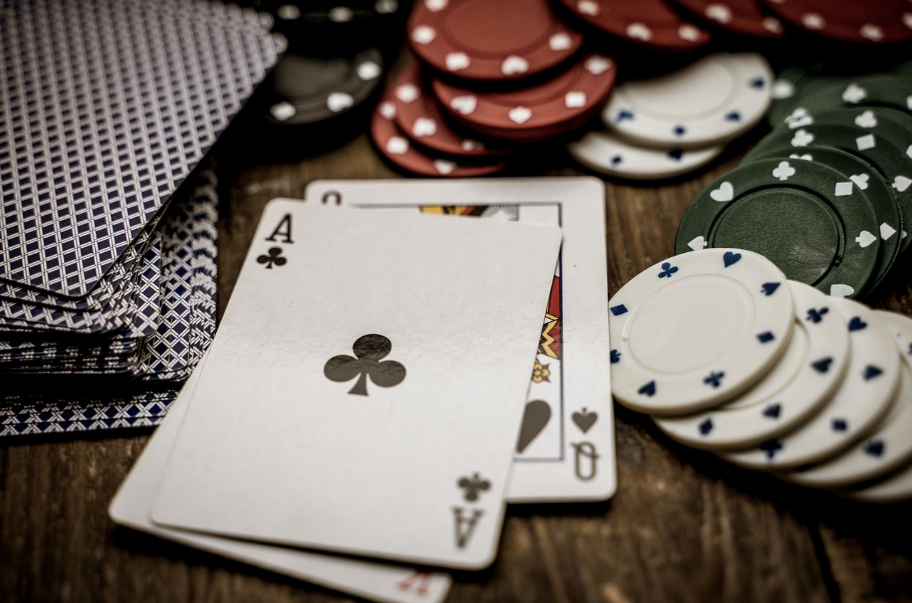The Degree of Skill That’s Actually Involved in Poker
Source: Pixabay No Attribution Required
Every reputable guide on poker references a definitive ‘skill-based component’ of the game. Players are routinely told that skill & strategy are essential to successfully playing poker. And yet, luck is always the overarching phenomenon. Good fortune can make or break players in poker. In the words of legendary golfer Jerry Barber, ‘The Harder I Practice, the Luckier I Get.’ Indeed, those words ring true in poker too.
You see, poker is a game of calculated decision-making, with a healthy dollop of good fortune thrown in. It’s just as much about playing the player as it is about playing your cards. Let’s say you want to play 3 Card Brag, or maybe even Texas Hold’em Poker – fine-tune your poker skills before you get started.
Remember, poker is a game of psychology, risk-taking, bankroll management, and rules-based play. It’s a total package deal. Today, we’re going to explore the degree of skill that’s actually involved in poker. It’s time to shuffle up and deal!
Let’s Talk Skill
The first thing to understand is that poker is a game of incomplete information. You don’t know what cards your opponents are holding, and they don’t know what cards you’re holding. This makes poker a game of probabilities and estimated values. In order to make the best possible decisions, you need to be able to calculate odds and use basic mathematical principles.
For example, if you’re holding a pair of kings and there are two other players still in the hand, there are 50% odds that one of them is holding an Ace (giving them a higher pair). There are also 33% odds that one of them is holding a lower pair. If you know this, you can make an informed decision about whether to continue betting or not.
These kind of calculations can seem daunting at first, but with a little practice, they become second nature. The good news is that there are plenty of online calculators and poker tools available to help you out. With a little bit of effort, anyone can learn how to do these calculations quickly and easily.
Read the Players
In addition to being able to do basic math, it’s also important to be able to read people. This is where psychology comes into play. Poker is as much about reading your opponents as it is about playing your own cards. You need to be able to tell when someone is bluffing, when they’re on a draw, and when they have a monster hand.
The ability to read people takes time and practice to develop. It’s not something that can be learned overnight. However, there are some basic tells that everyone should be aware of. For example, if someone starts sweating or breathing heavily, it’s usually an indication that they’re nervous about something.
If they avoid eye contact or fidget excessively, it could mean they’re trying to hide something. Of course, every player is different, so it’s important not to put too much stock in any one tell. The best way to get better at reading people is by paying attention and taking mental notes during each hand. Over time, you’ll start to see patterns emerge, and you’ll get better at making accurate reads.
Risk Some to Win Some!
Poker is also a game of risk-taking. In order to be successful, you need to be willing to put your chips on the line when you have a good chance of winning the pot. This means making bold moves and playing your opponents instead of just your cards. It takes guts to do this consistently, but it’s what separates the winners from the losers in poker.
Last but not least, bankroll management is essential for anyone who wants to play poker seriously. This involves setting aside money specifically for gambling purposes and adhering strictly to limits on how much money you’re willing lose in any given session or week/monthly period.
It also involves playing within your limits – only betting as much as you can afford to lose without going broke. Bankroll management might not seem like ‘skill-based component’ of poker, but it actually has a huge impact on your overall success or failure as a player.
All in all, poker requires a great deal of skill. It’s not just about luck; it’s about making calculated decisions, reading people, taking risks, and managing your bankroll correctly. Anyone who takes the time to learn the ins -and-outs of the game can become successful at poker.

